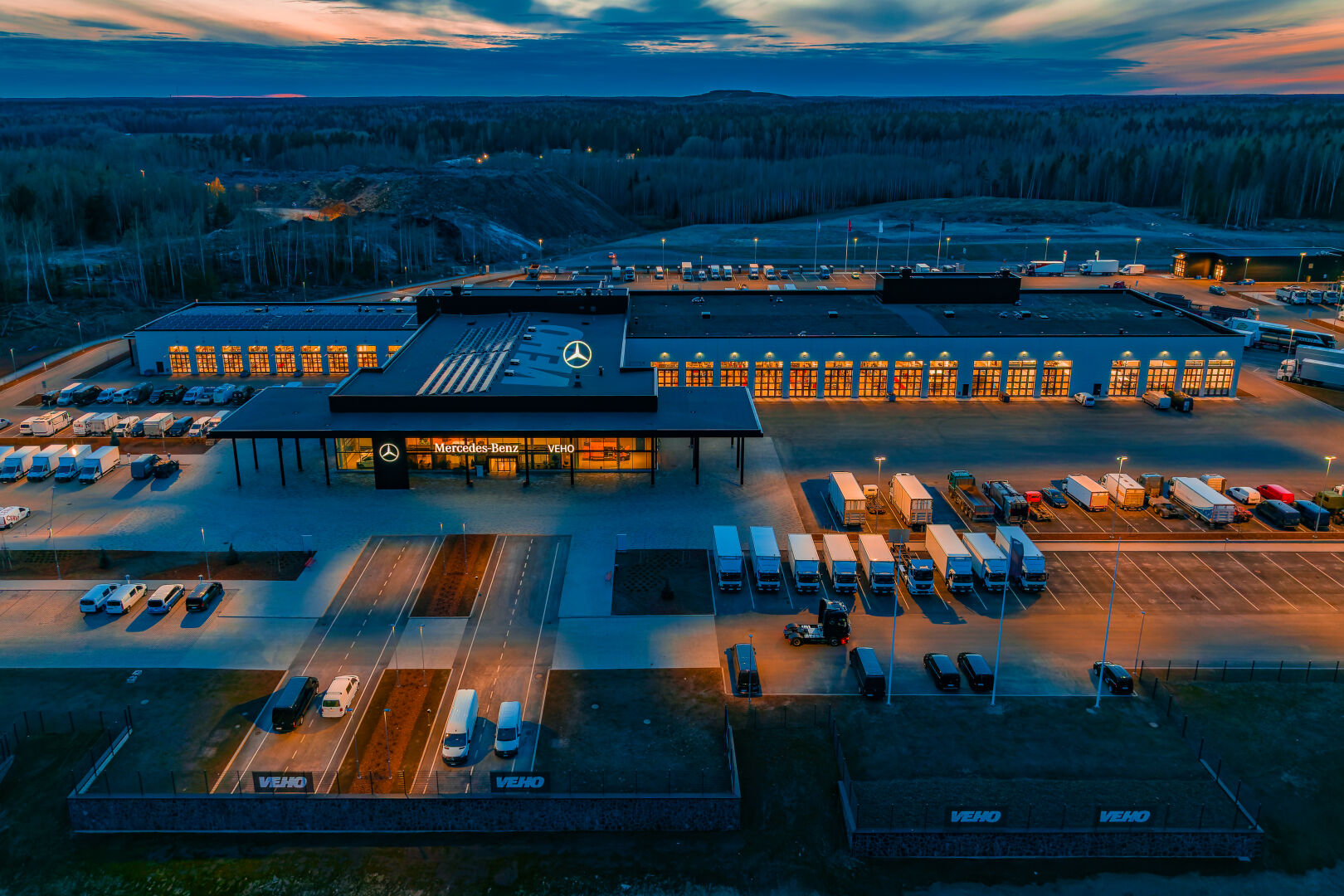

The carbon footprint of Veho Group’s own operations are assessed based on the emissions of the company’s own fleet and energy used in Veho facilities. Last year, emissions from Veho's real estate decreased by as much as 59 percent compared to the previous year.
"We have switched to renewable energy in all our facilities where possible; renewable electricity, and renewable energy for district heating," says Niko Karjalainen, Head of Real Estate at Veho. Of Veho's facilities in Finland, Estonia, Latvia, Lithuania and Sweden, some are owned by the Group and some are rented from external owners.
In addition to switching to renewable energy, the carbon footprint is reduced by cutting down energy consumption and optimising daily operations. Lighting has been – and will continue to be – upgraded to energy-efficient LED lights. Optimising conditions and operations helps to reduce energy consumption and prevent heat leakage. In Finland, for example, target temperatures have been defined for different types of facilities in cooperation with the technical real estate management.
It is part of Veho's sustainability approach that the facilities also produce part of their own electricity by solar panels, for example. Karjalainen says that power plant projects have been completed this year in Vehkala, Airport and Olari in Finland.
“As a result of these investments, we got more solar power capacity and clean electricity from early spring to late autumn.”
In addition to solar panels, a variety of heat pump solutions will be used in new properties.
"If geothermal heat is not possible in a facility for reasons related to groundwater, for example, then we use air-to-water heating solutions, which can be supported by other forms of energy production where necessary."
Karjalainen emphasises that the big advantage of heat pump technology is that the equipment multiplies the efficiency of the energy input.
"The efficiency is better compared to, for example, conventional district heating, and the heat pumps can also use renewable electricity."
The transition to renewable energy is a beautiful idea, but it also requires an economic investment. Niko Karjalainen believes that investing in renewable energy is both responsible and economically viable.
“Many things cost money, but technology is evolving and the efficiency of different equipment is constantly improving. This means that sustainability and economic thinking increasingly go hand in hand, and investing in sustainability can also make sense financially."